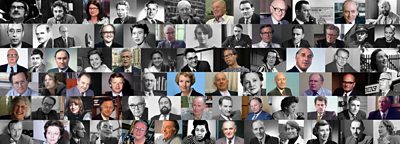Curated by leading academics from the University of Sussex and partner institutions, in collaboration with the ΒιΆΉΤΌΕΔ, 100 Voices and is an AHRC funded project that shines a light on the hidden stories of broadcasting.
Below are the key people featured in the project, originally divided into eight collections: , , , , , , , and .
The final 100 Voices, Inventing the Future is now published.
-

The ΒιΆΉΤΌΕΔ Oral History Project
Professor David Hendy outlines the unique value of oral history, and its longstanding importance at the University of Sussex. He explains how the 100 Voices collections reveal unique insights about the ΒιΆΉΤΌΕΔ, as well as uncovering the changing relationship between the broadcaster, the cultural life of the UK, and the wider world. Image: Tim Stubbings Photography / AHRC. -

Search the Collections
Search the Collections around key historic themes.
-
 Yvonne Adamson began her ΒιΆΉΤΌΕΔ radio career in 1945 as a reporter in North Region, part of the ΒιΆΉΤΌΕΔ to which she remained committed for the rest of her working life. Originally based in Newcastle she developed a love for the North-East in particular where she believed there wasnβt a "living soul" who didnβtβ have βsomething original, something interesting to relate".
Yvonne Adamson began her ΒιΆΉΤΌΕΔ radio career in 1945 as a reporter in North Region, part of the ΒιΆΉΤΌΕΔ to which she remained committed for the rest of her working life. Originally based in Newcastle she developed a love for the North-East in particular where she believed there wasnβt a "living soul" who didnβtβ have βsomething original, something interesting to relate". -
 John Ammonds always dreamt of working in radio comedy. He approached the ΒιΆΉΤΌΕΔ in 1941 with a speculative letter offering himself up as a junior engineer. He was asked if he would be interested in becoming a sound effects operator. For the next 13 years he could be found in the ΒιΆΉΤΌΕΔ's variety department. A move to television in 1968 saw Ammonds become one of the main producer/directors for Morecambe and Wise.
John Ammonds always dreamt of working in radio comedy. He approached the ΒιΆΉΤΌΕΔ in 1941 with a speculative letter offering himself up as a junior engineer. He was asked if he would be interested in becoming a sound effects operator. For the next 13 years he could be found in the ΒιΆΉΤΌΕΔ's variety department. A move to television in 1968 saw Ammonds become one of the main producer/directors for Morecambe and Wise. -
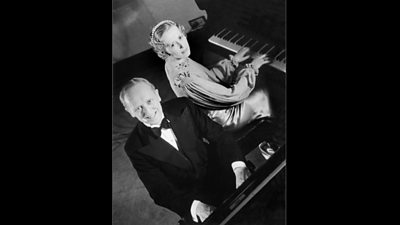 Doris Arnold was the ΒιΆΉΤΌΕΔβs first woman music presenter, on-air from 1938. Arnold joined the ΒιΆΉΤΌΕΔ in 1929, as a typist, but was interested in live radio. Her first radio appearance was as stand-in for a pianist who was unwell. Those You Have Loved was her first programme, where she played light classical recordings. The programme ran until 1977. Picture shows Doris Arnold with fellow pianist.
Doris Arnold was the ΒιΆΉΤΌΕΔβs first woman music presenter, on-air from 1938. Arnold joined the ΒιΆΉΤΌΕΔ in 1929, as a typist, but was interested in live radio. Her first radio appearance was as stand-in for a pianist who was unwell. Those You Have Loved was her first programme, where she played light classical recordings. The programme ran until 1977. Picture shows Doris Arnold with fellow pianist. -

David Attenborough
David Attenborough initially approached the ΒιΆΉΤΌΕΔ for a position in radio talks programmes for which he was rejected. However the ΒιΆΉΤΌΕΔ Television Service showed interest in him and after a three-month training course, Attenborough joined the ΒιΆΉΤΌΕΔ staff in 1952. By the early 1960s he had become Controller, ΒιΆΉΤΌΕΔ Two (1965-69), and then pursued a freelance career, presenting and producing iconic award winning series such as Life on Earth (1979), and A Perfect Planet (2021). -
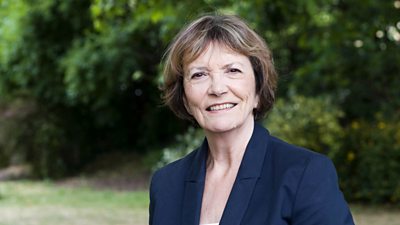
Joan Bakewell
Award winning journalist and presenter Joan Bakewell became nationally known when she appeared as one of the main presenters for Late Night Line-Up, a television review programme seen on the fledgling ΒιΆΉΤΌΕΔ Two channel (1965β72 and 2008). She was one of the very few serious women television journalists on air in the 1960s, and was dubbed "the thinking man's crumpetβ by comedian Frank Muir, such was the level of sexism amongst male colleagues at the time. She has since enjoyed a prolific career as a writer, commentator and communicator. -

Elisabeth Barker
Elisabeth Barker (1910 - 1986) was a diplomatic correspondent for the ΒιΆΉΤΌΕΔ throughout the 50s and 60s, where her intimate knowledge of Eastern Europe was invaluable. Barker started in the news library in 1934, and was a sub-editor during the War. She was there in June 1940 when General de Gaulle delivered his historic broadcast. -
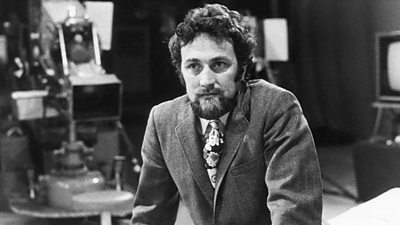
Edward Barnes
Edward Barnes made Blue Peter a TV reality, and was the programme's assistant director, later moving on to produce the series. Barnes was also the mastermind behind children's television news programme Newsround, in April 1972. He became the head of ΒιΆΉΤΌΕΔ children's programmes for eight years until 1986. -
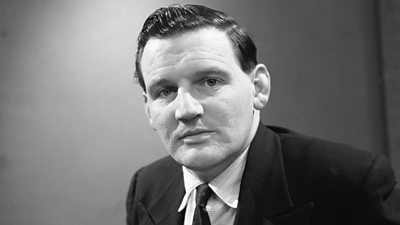
Donald Baverstock
Donald Baverstock began his ΒιΆΉΤΌΕΔ career in the ΒιΆΉΤΌΕΔ television talks department, producing regular live magazine programmes such as Tonight. From 1961 he moved into ΒιΆΉΤΌΕΔ management as ΒιΆΉΤΌΕΔ Assistant Controller of Programmes, responsible for the Television Service. He also devised the long running religious programme Songs of Praise. -
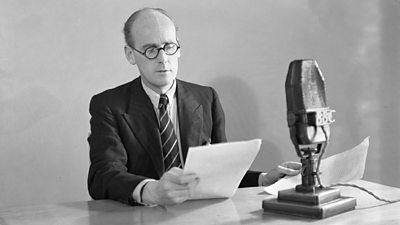
Bruce Belfrage
Bruce Belfrage was a familiar voice on the ΒιΆΉΤΌΕΔ as a newsreader and announcer. He started in the early days of radio but achieved fame on the night in 1940 when a bomb went off in Broadcasting House. Belfrage was on air at the time but carried on as though nothing had happened. -

Anthony Wedgwood Benn
After graduating from New College, Oxford (M.A., 1949), Tony Benn worked as a ΒιΆΉΤΌΕΔ radio producer (1949-50). He was first elected to Parliament in 1950, and renounced his peerage in 1963. He was Postmaster General (1964), Secretary of State for Industry, and Secretary of State for Energy (1975-79). -

Jana Bennett
Jana Bennett joined the ΒιΆΉΤΌΕΔ News Trainee Scheme in 1979, and started her career producing news for Look North (Newcastle) and Radio Sheffield. She moved to Panorama in 1986, moving on again in 1990 to become Editor, Horizon. Her last ΒιΆΉΤΌΕΔ job was as Director of Production in 1997, joining the ΒιΆΉΤΌΕΔβs Board of Management. -
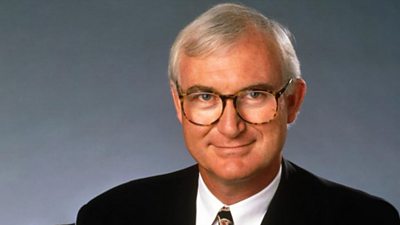
John Birt
John Birt (Lord Birt of Liverpool, Sir John, 1944-) was ΒιΆΉΤΌΕΔ Director-General from 1992 to 2000. He joined the ΒιΆΉΤΌΕΔ from London Weekend Television in 1987 as Deputy Director-General. He devised an internal market system which encouraged producers to choose between ΒιΆΉΤΌΕΔ suppliers and the outside market for their facilities. As Director-General from 1992 he oversaw the ΒιΆΉΤΌΕΔ's involvement with online and digital services. -
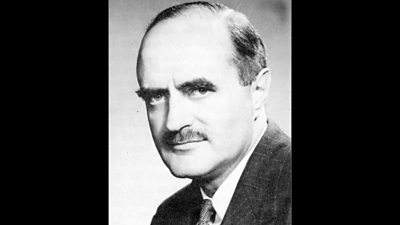
Harold Bishop
Sir Harold Bishop was a key ΒιΆΉΤΌΕΔ engineer working on experimental television in the 1920s. He was a key player in the development of all-electronic TV service at Alexandra Palace. He was Chief Engineer for much of his ΒιΆΉΤΌΕΔ career, and from 1952 to 1956 he took on the role of Director, Technical Services, rising to Director of Engineering until retirement in 1963. -
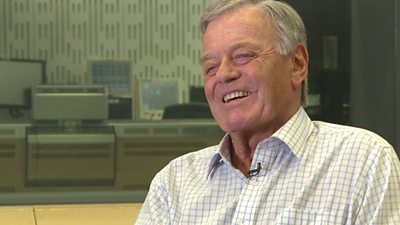
Tony Blackburn
Tony Blackburn (1943 - ) was the first voice heard on Radio 1 when the new station launched in 1967. He was appointed for the credibility and easy presenting style he brought from pirate radio, but enjoyed a long ΒιΆΉΤΌΕΔ career and can now be heard on Radio 2. -
 Stephen Bonarjee (1912 - 2003) was the ΒιΆΉΤΌΕΔ executive that created iconic series such as From Our Own Correspondent and the Today Programme. He was known as a sincere supporter of equality for women inside the ΒιΆΉΤΌΕΔ, but refused to allow Womenβs Liberation posters to remain on the walls of the Womenβs Hour production office. His other innovations in radio include A Week in Westminster.
Stephen Bonarjee (1912 - 2003) was the ΒιΆΉΤΌΕΔ executive that created iconic series such as From Our Own Correspondent and the Today Programme. He was known as a sincere supporter of equality for women inside the ΒιΆΉΤΌΕΔ, but refused to allow Womenβs Liberation posters to remain on the walls of the Womenβs Hour production office. His other innovations in radio include A Week in Westminster. -
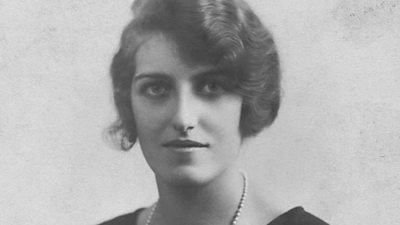 Olive Bottle was the ΒιΆΉΤΌΕΔβs first telephonist, beginning work in its first year, when it was a commercial company. She had a close working relationship with the ΒιΆΉΤΌΕΔβs first Director-General John Reith, for whom she would make coffee. She fielded calls from senior government officials, and also dealt with all enquiries from the general public. She met her husband to be, a ΒιΆΉΤΌΕΔ engineer in Leeds, over the internal telephone network.
Olive Bottle was the ΒιΆΉΤΌΕΔβs first telephonist, beginning work in its first year, when it was a commercial company. She had a close working relationship with the ΒιΆΉΤΌΕΔβs first Director-General John Reith, for whom she would make coffee. She fielded calls from senior government officials, and also dealt with all enquiries from the general public. She met her husband to be, a ΒιΆΉΤΌΕΔ engineer in Leeds, over the internal telephone network. -
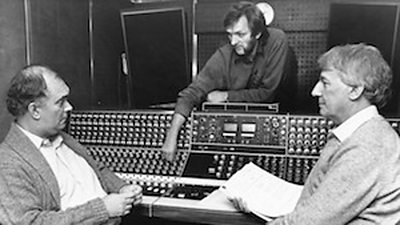 Alfred Bradley was a prolific radio drama producer determined to seek our new talent, often offering newcomers their first break into radio. He was always on the side of the performer and writer, and acted on their behalf in trade disputes. Bradley produced his work mainly for the ΒιΆΉΤΌΕΔ North region, but many of his plays were networked nationally. Alfred Bradley is pictured on the right.
Alfred Bradley was a prolific radio drama producer determined to seek our new talent, often offering newcomers their first break into radio. He was always on the side of the performer and writer, and acted on their behalf in trade disputes. Bradley produced his work mainly for the ΒιΆΉΤΌΕΔ North region, but many of his plays were networked nationally. Alfred Bradley is pictured on the right. -
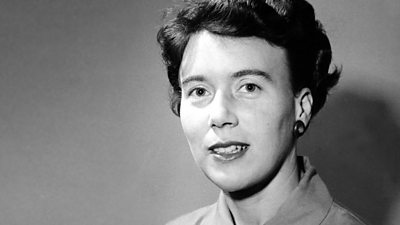
Barbara Bray
Barbara Bray βdiscoveredβ Harold Pinter for ΒιΆΉΤΌΕΔ Radio, commissioning many of his earliest works for radio. Starting her work as a Script Editor for the ΒιΆΉΤΌΕΔ Third Programme, she began her ΒιΆΉΤΌΕΔ career in 1953. -
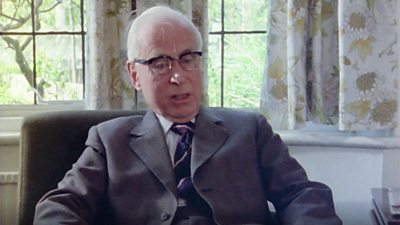
Tony Bridgewater
Tony Bridgewater was a pioneering engineer, who launched the worldβs first public hi-definition television service for the ΒιΆΉΤΌΕΔ in 1936. He directed the ΒιΆΉΤΌΕΔβs first outside broadcast β the Coronation of George VI β and went on to preside over innovations like colour television and the start of ΒιΆΉΤΌΕΔ Two, finishing his career as Chief Engineer. -
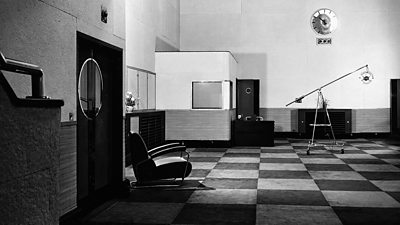
George Budden
George Budden was a real radio enthusiast by nature, and an expert radio engineer by profession. In 1938, he answered an advertisement for temporary staff at the ΒιΆΉΤΌΕΔ, kicking off a 45-year career with the corporation, first at the Maida Vale in London, then moving to Manchester for 30 years. During the war he became an accredited war correspondent and took part in a bombing raid over Berlin which was broadcast -
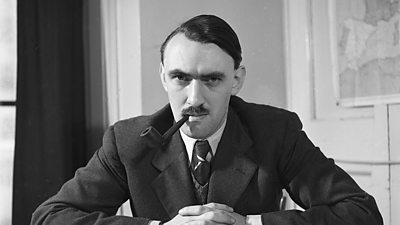
Alan Bullock
Alan Bullock belonged to a generation of historians who were comfortable in academic circles but also adept at popularising their studies. Becoming Lord Bullock in later life, he spent his war years in the ΒιΆΉΤΌΕΔ European Services, but returned to teaching at Oxford University becoming its Vice Chancellor in 1969. -
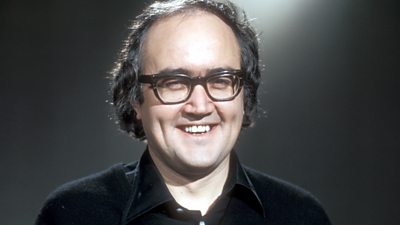
James Burke
James Burke was involved in television documentary work from 1965, Burke was a chief commentator on the Apollo space missions. He also worked as a reporter on Tomorrowβs World, which led to his own challenging but popular science series, such as Connections and The Day the Universe Changed. -
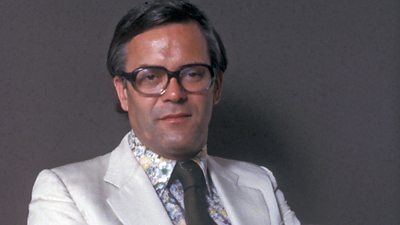
Humphrey Burton
Humphrey Burton joined ΒιΆΉΤΌΕΔ radio in 1955, transferring to television three years later. As administrator, producer and presenter, he was associated with three of the most significant series in the field: Monitor and Omnibus for the ΒιΆΉΤΌΕΔ, and Aquarius for ITV. -

Judith Chalmers
Judith Chalmers began her broadcasting career for the ΒιΆΉΤΌΕΔ when she was only 13. Selected to present the ΒιΆΉΤΌΕΔ Northern Children's Hour, she soon found herself introducing childrenβs stories and features. It wasnβt long before she graduated to network radio, eventually presenting Womenβs Hour, plus stints on major ΒιΆΉΤΌΕΔ television series.
-
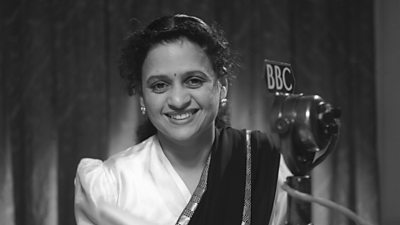
Venu Chitale
Venu Chitale arrived in Britain from colonial India in the 1930s, and became a talks broadcaster and assistant to George Orwell at the ΒιΆΉΤΌΕΔβs Indian Section of the Eastern Service. From 1940 she broadcast in Marathi, whilst producing radio programmes for the wider Indian Section (1941-43). She also broadcast in English on the UK-only ΒιΆΉΤΌΕΔ ΒιΆΉΤΌΕΔ Service, serving as a newsreader during the Blitz. -
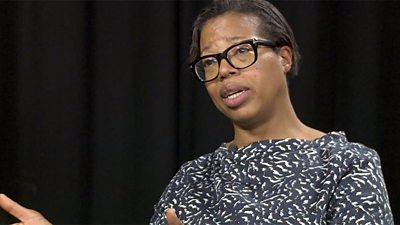
Lorna Clarke
Lorna Clarke is Controller of Pop Music at the ΒιΆΉΤΌΕΔ, with responsibility for the portfolio of five national popular music networks. With over 30 years broadcasting experience, Lorna kicked off her radio career in 1985 as a news reporter at ΒιΆΉΤΌΕΔ Radio Cornwall, which was followed by various production roles at ΒιΆΉΤΌΕΔ London and World Service. -
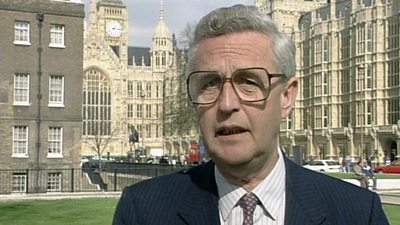
John Cole
John Cole was Political Editor of the ΒιΆΉΤΌΕΔ from 1981 to 1992. His distinctive coat and Ulster accent made him instantly recognisable to viewers, and his depth of knowledge and impartiality gave him great authority, which was respected by public and politicians alike. His achievements included successfully predicting that John Major would replace Margaret Thatcher as Prime Minister. -

Norman Collins
Norman Collins ran the Light Programme from 1946. Under his leadership it became the most popular radio station, introducing favourites like Womenβs Hour and Much Binding in the Marsh. Then as Controller of Television he fought for the service and secured the right to televise the 1950 General Election results. -

Bill Cotton
Bill Cotton was son of dance band leader Billy Cotton, and was a senior ΒιΆΉΤΌΕΔ television producer and executive. He joined the ΒιΆΉΤΌΕΔ Television Service in 1956 as a producer, moving to become Head of Light Entertainment where he saw in the launch of Monty Python's Flying Circus, and The Two Ronnies. He retired in 1989 as Managing Director, ΒιΆΉΤΌΕΔ Television. -
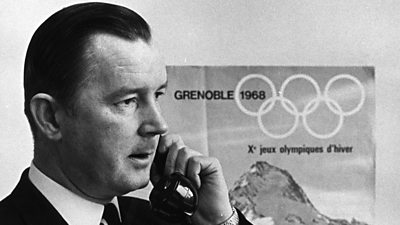
Bryan Cowgill
Bryan Cowgill was first employed by ΒιΆΉΤΌΕΔ Outside Broadcasts department in 1955, working mainly in sports programmes. He was the mastermind behind Grandstand, coming up with the idea in 1958. In 1963 he became Head of Sport, and oversaw the introduction of Match of the Day a year later. He stepped up to become Controller, ΒιΆΉΤΌΕΔ One in 1973. -
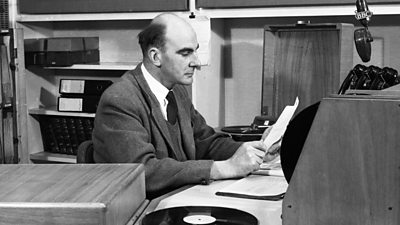
Tom Crowe
Tom Crowe joined the ΒιΆΉΤΌΕΔ Third Programme in 1952 as announcer, but found the repetitive nature of role restricting, and left in 1960, only to return 4 years later when the ΒιΆΉΤΌΕΔ had modernised and lightened its on-air style. The role had changed by the time of his return, and he was able to add more personality to his broadcasts. He was prone to accidents during live broadcasts, but was hugely loved for his warm personality. He retired from the ΒιΆΉΤΌΕΔ in 1982. -
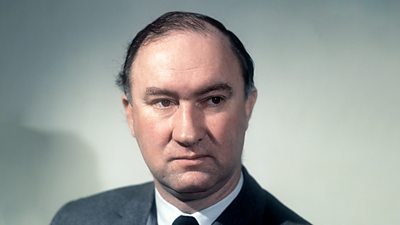
Charles Curran
Charles Curran was the first ex-grammar school Director-General. He served in the Indian army but left to work in the ΒιΆΉΤΌΕΔ Talks department. He resigned after a dispute to edit Canadian Fishing News but came back in 1951 to ΒιΆΉΤΌΕΔ Monitoring.Subsequent posts included Secretary and Director of External Broadcasting. He was President of the European Broadcasting Union for three terms. In 1977 he became Managing Director of news agency Visnews. -
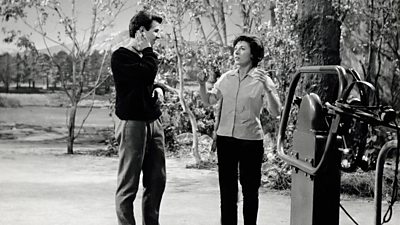
Margaret Dale
Margaret Dale developed ballet for ΒιΆΉΤΌΕΔ Television, creating special techniques for optimising it on-screen. Throughout the 1950s she produced much of the Royal Ballet's repertoire for television. Daleβs passion for ballet originates from her own experience as a dancer with the Royal Ballet, which left her well placed to produce major works such as CoppΓ©lia (1957), Petrushka (1962) and La Fille Mal GardΓ©e (1962) for ΒιΆΉΤΌΕΔ Television. -
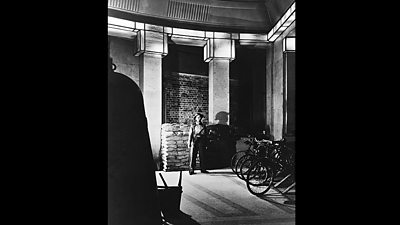
John Daligan
Prior to World War II, John Daligan was a commissionaire at the ΒιΆΉΤΌΕΔ meeting and greeting staff and guests entering Broadcasting House. At the declaration of war his fellow staff members were billeted in various outposts of the ΒιΆΉΤΌΕΔ, many outside London. John spent 4 years serving in Burma, and on his return came back into a clerical position. Unlike Civil Service employees who enjoyed a nominal increase in pay because of the changed situation, ΒιΆΉΤΌΕΔ staff were not so lucky, many left the corporation as a result, but John stayed until retirement. -
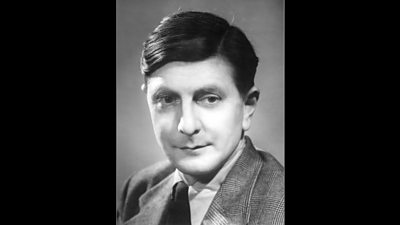
David Davis
David Davis joined Children's Hour at the beginning of 1935 as a staff pianist, after qualifying as a professional musician and teacher at Oxford University. He was soon reading childrenβs classics such as Black Beauty. By 1953 he became Head of Childrenβs Hour, until its demise in 1964. He moved into radio drama specialising in classic works from the Victorian period. -
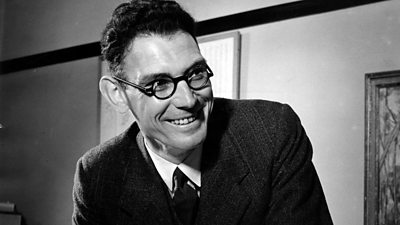
Alun Oldfield-Davies
Alun Oldfield-Davies was an outstanding figure in Welsh broadcasting, Oldfield-Davies went from teaching to join the ΒιΆΉΤΌΕΔ Education Department in 1937. He was Controller, Wales from 1945 to 1967, his long tenure stretching from post-war reconstruction to the opening of the new broadcasting centre in Llandaff more than twenty years later. -
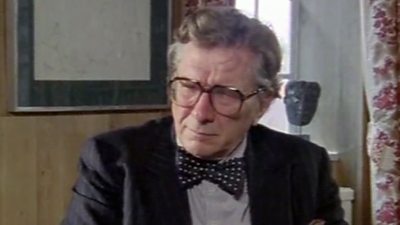
Robin Day
Robin Day the doyen of British political interviewers, trained as a barrister and first joined the ΒιΆΉΤΌΕΔ in 1955. After a stint at ITN and a failed attempt to become an MP he re-joined the Corporation in 1959, where he honed his distinctive gruff style on programmes including Panorama, The World at One and Question Time. -
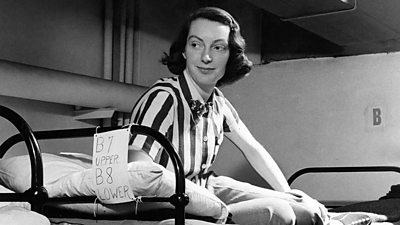
Clare Lawson Dick
Clare Lawson Dick rose to become controller of Radio 4 in 1975, the first woman in charge of a network. She brought enormous experience to the job, having joined the ΒιΆΉΤΌΕΔ forty years earlier as a registry clerk. She knew the station should appeal to the emotions as well as the intellect and saved Down Your Way. -

Peter Dimmock
Peter Dimmock was an important figure in televisionβs developing years, as an outside broadcast producer and one of the first sports commentators. He was the host of Sportsview and launched Grandstand. He persuaded the royal family to allow cameras inside Westminster Abbey for the Coronation in 1953, for a broadcast that was watched by half the population. -

Margaret Douglas
Margaret Douglas was the first woman to be the ΒιΆΉΤΌΕΔs chief political adviser, handling the fractious relationship with the government during the Thatcher years. She joined the ΒιΆΉΤΌΕΔ in 1951 and worked her way up, becoming a producer on current affairs shows like Gallery and 24 Hours, before running the television coverage of party political conferences. -
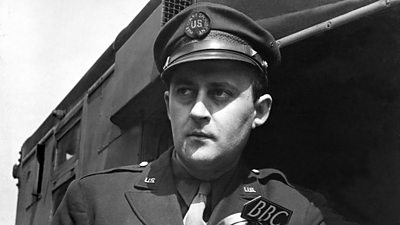
Robin Duff
Robin Duff was a well-known war correspondent. He covered the Normandy landings, and the liberation of Paris in 1944. He also had a little remembered on-air role from 1933 appearing in radio drama and as a presenter of music programmes. He was a fervent ballet fan, and appeared on various programmes contributing on the subject well into the 1960s. -

Martin Esslin
Martin Esslin served as a ΒιΆΉΤΌΕΔ producer, script writer and broadcaster, having joined in the ΒιΆΉΤΌΕΔ in 1940. By 1963 he had become Head of Radio Drama after a spell heading up the ΒιΆΉΤΌΕΔ European Service. Esslin was able to realise his dream of creating a "national theatre of the air", by curating a regular drama schedule across ΒιΆΉΤΌΕΔ ΒιΆΉΤΌΕΔ Service, Third Programme, Radio 3 and Radio 4. -
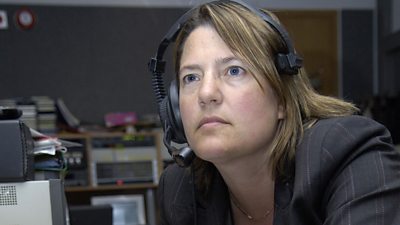
Amanda Farnsworth
Amanda Farnsworth held various ΒιΆΉΤΌΕΔ roles before rising to Editor of the One and Six O'Clock News programmes, Deputy Editor on Newsnight, and Bureau Chief in Washington DC. As Project Executive, she masterminded the partnerships which lead to the successful ΒιΆΉΤΌΕΔ coverage of the London 2012 Olympics. -
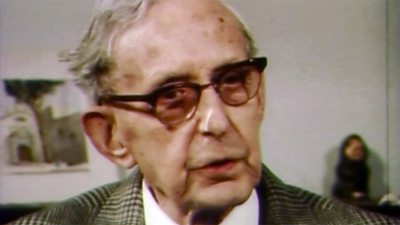
Eric Fenn
Eric Fenn was a Presbyterian theologian, college principal and deputy head of ΒιΆΉΤΌΕΔ religious broadcasting. Initially appointed Assistant Director of Religious Broadcasting in 1939, Fenn was active in the ΒιΆΉΤΌΕΔβs Central Religious Advisory Committee, which initiated a dialogue within the ΒιΆΉΤΌΕΔ about the role of Christianity on-air. -
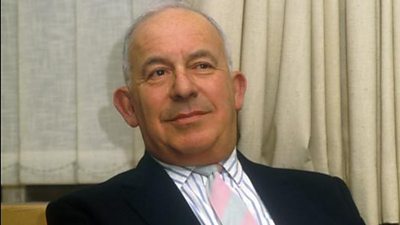
Paul Fox
Paul Fox joined the ΒιΆΉΤΌΕΔ in 1950 as a newsreel scriptwriter and went on to edit both Sportsview and Panorama before becoming controller of ΒιΆΉΤΌΕΔ One. After 15 years at Yorkshire TV he returned to the ΒιΆΉΤΌΕΔ in 1988 as managing director of network television. -
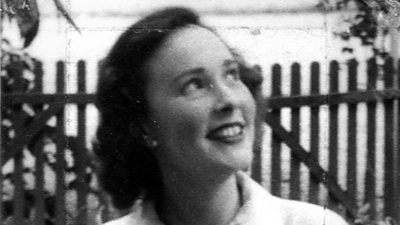
Patricia (Paddy) Foy
Patricia (Paddy) Foy was a highly successful TV director and producer who discovered the work of Nureyev, Fontaine, Placido Domingo, and Jacqueline Dupre for the ΒιΆΉΤΌΕΔ. She was regular producer on Music for You and Gala Performance. She won a Best Factual Series BAFTA for her Magic of Dance series of 1980. -

Richard Francis
Richard Francis was a senior management figure at ΒιΆΉΤΌΕΔ Northern Ireland, rising to Controller Northern Ireland by the 1970s. He was known for his deep concern with serving all communities in Northern Ireland fairly and equally. -
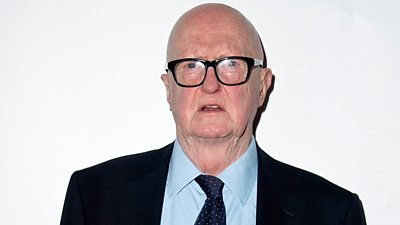
Philip French
Philip French began working life as a reporter for the Bristol Evening Post, and by 1959 had joined ΒιΆΉΤΌΕΔ Radio in London, rising to senior talks producer (1968). He specialised in programmes on theatre and film criticism, and became film critic of The Observer, only retiring from that role when he was 80. -
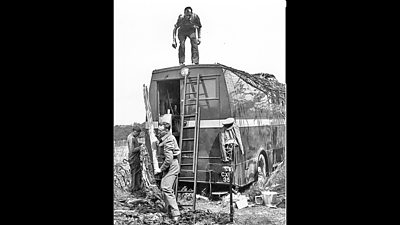
Malcolm Frost
Malcolm Frost became interested in radio when at school in the 1920s, and joined the ΒιΆΉΤΌΕΔ in 1932. He started his career in the Empire Service. His first role was in the Transcription Service, sending out recorded programmes to broadcasters across the world. During World War Two he moved into the Monitoring Service returning to Transcription in his later years. -

Michael Grade
Michael Grade joined the ΒιΆΉΤΌΕΔ from London Weekend Television, accepting a large pay cut to do so. He rose to Director of Programmes (1986), and Managing Director, Television (designate) in 1987, leaving the ΒιΆΉΤΌΕΔ at the end of that year. During his tenure he oversaw the commissioning of major series such as The Singing Detective, Casualty, and Live Aid, and also ended the transmission of Miss World. -

James Gilbert
James (Jimmy) Gilbert, was a prolific television producer, director and executive for the ΒιΆΉΤΌΕΔ. He developed Monty Pythonβs Flying Circus for television, and was co-devisor of The Frost Report, with David Frost. Gilbert won a BAFTA in 1974 for Best Comedy. He was appointed Head, ΒιΆΉΤΌΕΔ Light Entertainment in 1977. -

Frank Gillard
Frank Gillard was one of the most familiar voices on radio during the Second World War, as a war correspondent in North Africa and Europe. He went on to head ΒιΆΉΤΌΕΔβs West Region and was later Manging Director of Radio. He was instrumental in the introduction of local radio and the launch of Radio 1. -
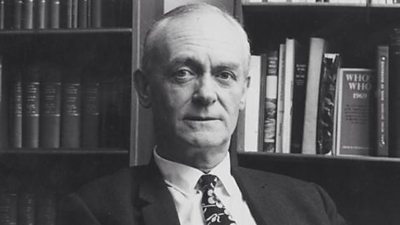
William Glock
William Glock served as ΒιΆΉΤΌΕΔ Controller of Music from 1959 to 1972, introducing many avant-garde composers to ΒιΆΉΤΌΕΔ radio. He was also head of the ΒιΆΉΤΌΕΔ Proms for thirteen years taking personal control of it. -

Grace Wyndham Goldie
Grace Wyndham Goldie was one of the first women in a senior position at the ΒιΆΉΤΌΕΔ. As a current affairs producer she was a pioneer of the televised general election results programmes, starting in 1951. She successfully revamped Panorama and launched Tonight in 1957, before becoming Head of Talks and Current Affairs. -
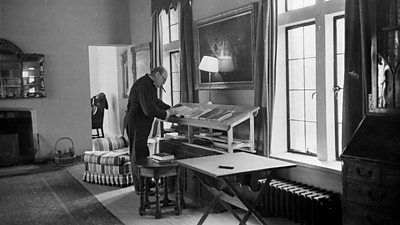
John Green
John Green was hired by John Reith in 1933 whilst still a pupil barrister in London. Reith was concerned that there were too many left wing producers, and that by employing Green it might redress the political balance. John Green worked on gardening programmes and βdiscoveredβ the wartime gardening expert CH Middleton, before becoming Controller, Talks. -
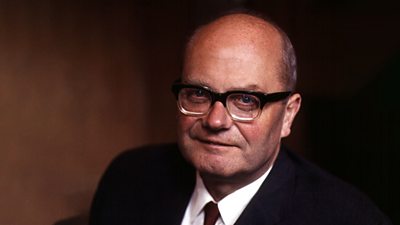
Hugh Carleton Greene
Sir Hugh Carleton Greene joined the ΒιΆΉΤΌΕΔ in 1940 as news editor, responsible for broadcasts to Nazi Germany. He became Director General in 1960 and led the ΒιΆΉΤΌΕΔ throughout the Sixties, which saw the arrival of ΒιΆΉΤΌΕΔ Two, colour television and local radio. -

Harman Grisewood
Harman Grisewood made a quick move into the ΒιΆΉΤΌΕΔ following graduation, joining the staff in 1927. He became Assistant to the Programme Organiser (1938-9), and between 1939-41, Assistant Director, Programme Planning. The peak of his career came when he took the role of Controller of the ΒιΆΉΤΌΕΔ Third Programme until 1952. For television he also devised the long running Money Programme (1966). -

David Hatch
David Hatch began his ΒιΆΉΤΌΕΔ career as a radio producer and devised the popular satirical show Week Ending. Hatch became Network Radio Editor, ΒιΆΉΤΌΕΔ Manchester 1974β78, and then took on various Controller roles until he became Managing Director, Radio, and Adviser to the Director-General, (1993β95). -
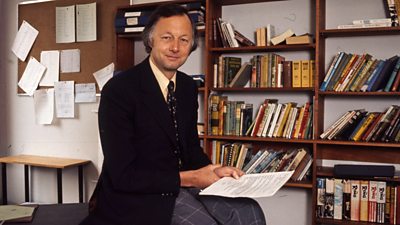
Alan Hart
Alan Hart initially worked for Grandstand as Editor in the 1960s. By 1977 he had become Head of ΒιΆΉΤΌΕΔ Sport. Following the departure of Bill Cotton, Hart became Controller, ΒιΆΉΤΌΕΔ One, seeing in the hugely popular twice-weekly soap opera Eastenders. He moved Doctor Who to a more popular evening weekday slot in 1982, and commissioned The Five Doctors to mark the 20th anniversary of the iconic series. -
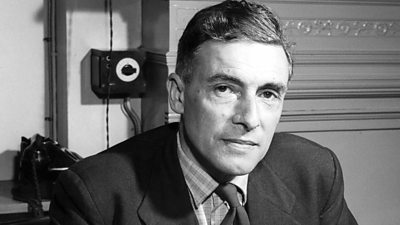
Desmond Hawkins
Desmond Hawkins had a very long career in the ΒιΆΉΤΌΕΔ first as a programme maker and then as a departmental head. He had ideas successfully accepted for the pre-war ΒιΆΉΤΌΕΔ Television Service. His first was an anthologyof poetry about birds called βA Nest of Singing Birdsβ. His interest in nature was a driving force behind the setting up of the ΒιΆΉΤΌΕΔ Natural History Unit in Bristol. In 1955 Hawkins became Head of Programmes, Bristol.
-
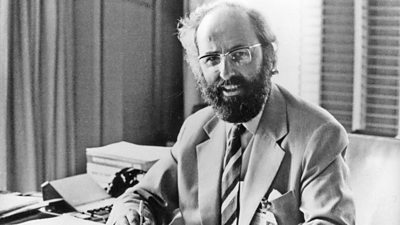
James Hawthorne
James Hawthorne left the teaching profession to join the ΒιΆΉΤΌΕΔ in 1960. After a long secondment to broadcasting in Hong Kong, he returned as Controller, Northern Ireland from 1978-1987, and saw the ΒιΆΉΤΌΕΔ through a testing period which included the Republican hunger strikes, the assassination of Mountbatten, the Brighton bomb and the Real Lives controversy. -

Steven Hearst
Steven Hearst started work as a freelance writer of newsreel scripts, and joined the ΒιΆΉΤΌΕΔ in 1952. Once on the staff he wrote narration for documentaries, moving into television production (1955-65). He became Executive Producer, Arts, under Huw Wheldon. In 1967 he became Head, Television Arts Features and was instrumental in commissioning the landmark 13 part series Kenneth Clark's Civilisation. -
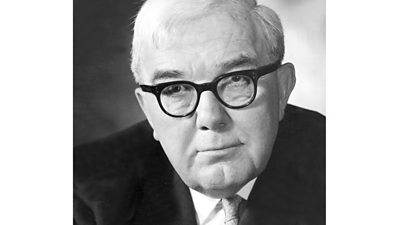
Charles Hill
Charles Hill delivered his first broadcast talk on the Kitchen Front in 1942. The programme, set up in association with the Ministry of Food, was designed to offer tips on how to maximise food rations in time of war. As The Radio Doctor, Hill was famous for his reassuring voice and authoritative medical advice. -
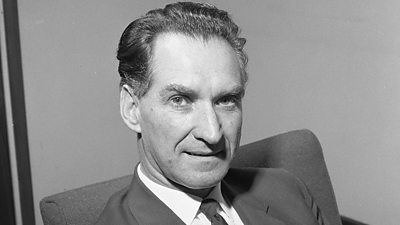
Stuart Hood
From 1961-63 Stuart Hood was Controller, ΒιΆΉΤΌΕΔ Television. His tenure coincided with that of ΒιΆΉΤΌΕΔ Director-General Hugh Carleotn-Greene. Both were known for their progressive ideas about programming that reflected the liberalising ethos of the 1960s. Hood oversaw the launch of the satire That Was the Week That Was, police drama Z-Cars, and science fiction hit Doctor Who. -
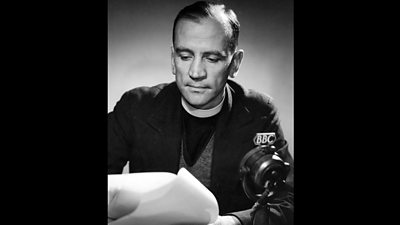
Francis House
Francis House was a producer of religious broadcasts to Germany from 1942. He rose to the position of Head, Religious Broadcasting (1947-55). His early work was not associated with the ΒιΆΉΤΌΕΔ but involved reporting on the fate of Germany in the run up to World War Two, to major religious bodies in the UK. He visited Berlin to meet leaders of the Young Church movement, many of whom were imprisoned for supporting the Jews. -

Patricia Hughes
Patricia Hughes was a ΒιΆΉΤΌΕΔ Radio 3 continuity announcer and newsreader, known for her perfect diction and precise on-air timing. She followed a well-known ΒιΆΉΤΌΕΔ career route, starting in the ΒιΆΉΤΌΕΔ typing pool in 1944. Her first announcing work was with the ΒιΆΉΤΌΕΔ Overseas Service, with contracts across all the major ΒιΆΉΤΌΕΔ national networks. Presenting Lunchtime Concerts on ΒιΆΉΤΌΕΔ Radio 3 was one of her regular commitments. -
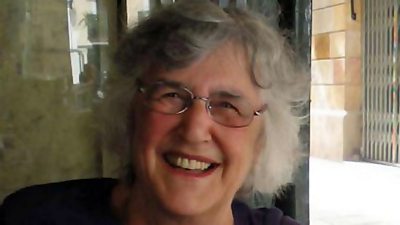
Gillian Hush
Gillian Hush joined the ΒιΆΉΤΌΕΔ in 1965 after working as a journalist the Middlesbrough Evening Gazette. Gillianβs first ΒιΆΉΤΌΕΔ job was in Newcastle as a news assistant. In 1974 she moved to ΒιΆΉΤΌΕΔ Manchester as a radio producer and stayed there until she retired in 1995. She mainly worked on features heard on ΒιΆΉΤΌΕΔ network radio, often for Womenβs Hour, and also specialised in conversation based programmes. -
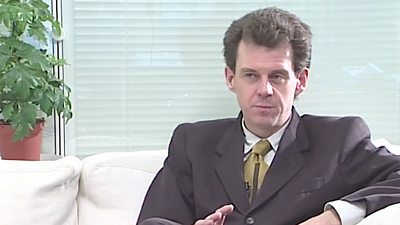
Michael Jackson
Michael Jackson joined the ΒιΆΉΤΌΕΔ as founding editor of The Late Show in 1988, rising swiftly to become Head of Music & Arts in 1991. Two years later he assumed the Controllership of ΒιΆΉΤΌΕΔ Two which he ran for three years before taking on ΒιΆΉΤΌΕΔ One too. He left the ΒιΆΉΤΌΕΔ to run Channel 4 (1997-2001), followed by a media career in the USA. -
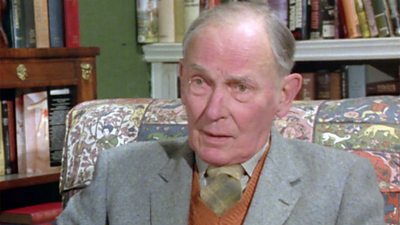
Ian Jacob
Sir Ian Jacob became Director General in 1952 and stayed until 1960, during which time television overtook radio as the dominant medium. He joined the ΒιΆΉΤΌΕΔ in 1946 as controller of European services after a career in the army. As DG he battled to remove the fourteen-day rule and fought to maintain the ΒιΆΉΤΌΕΔβs independence when it was threatened during the Suez crisis. -
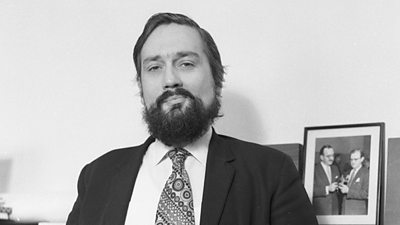
Geraint Stanley Jones
Geraint Stanley Jones joined ΒιΆΉΤΌΕΔ Wales in 1960 as a Studio Manager, moving into television production. By 1974 he had become Head of Programmes for ΒιΆΉΤΌΕΔ Wales, moving up to the position of Controller from 1981 to 1989. He oversaw the launch of S4C β the Welsh Channel 4 in 1982. From 1989 to 1994 he became S4C Chief Executive. -

Austen Kark
Austen Kark joined the ΒιΆΉΤΌΕΔ in1954 as a reporter, moving swiftly to become head of the South European service at Bush House within 10 years. He moved over to services beamed at Russia and the former Eastern Bloc in the early 1970s, and became Managing Director, World Service in 1984. He oversaw the launch of ΒιΆΉΤΌΕΔ World Service Television. -
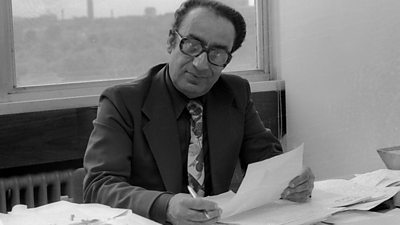
Mahendra Kaul
Mahendra Kaul was the face of the Asian Programmes Unit, introducing Apna Hi Ghar Samajhiye on Sunday morning radio and television, and - from 1968 - NaiZindagi Naya Jeevan. He interviewed the biggest cultural and political figures from the Indian subcontinent, like Lata Mangeshkar and Indira Gandhi, but also British politicians such as Margaret Thatcher. -

Ray Lakeland
Ray Lakeland became a major player in the development of sports television after initial work as reporter for the ΒιΆΉΤΌΕΔ in Newcastle. Big audience shows were amongst his early production roles, working on Come Dancing and Six Five Special. He developed the system for televising major horse racing events which was pioneered at the 1960 Grand National. He attached a camera to the roof of a car that kept pace with the horses. He retired in 1976. -
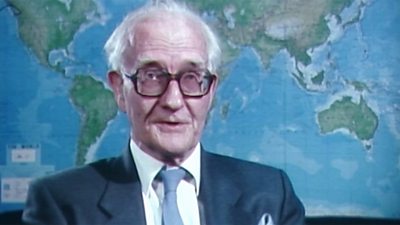
Maurice Latey
Maurice Latey broadcast talks on the ΒιΆΉΤΌΕΔ European Service. He began his career on a programme called Sanderberichte on the German Service in the Spring of 1939. By the 1960s he had become Head of the East European Service, after having spent many years producing and presenting programmes directed to that area. Latey also lectured widely on the subject of totalitarian regimes, religion and politics. -

Cecil Lewis
Appointed as the ΒιΆΉΤΌΕΔ's Deputy Director of Programmes in November 1922, Lewis was part of the original ΒιΆΉΤΌΕΔ management team and was its youngest member, being only 24 when starting in the role. He was very well connected, and brought a huge range of scientists, actors, writers, politicians and performers of all kinds to the microphone, setting high standards of radio production for years to come. -
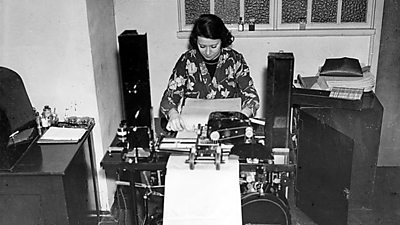
Mary Lewis
Mary Lewis joined the ΒιΆΉΤΌΕΔ in 1938 as a Temporary Checking Clerk in the Duplicating Office and over a distinguished 38 year career went on to become Head of Pay Policy. She worked throughout the War, playing a small but vital part in keeping the ΒιΆΉΤΌΕΔ on the air. -

Alexander Lieven
In 1960, Alexander Lieven joined the ΒιΆΉΤΌΕΔ as βRussian Programme Organizerβ. From 1964 to 1969 he was deputy head of the service, working with Maurice Lateymonitor broadcasts from the Russian, Romanian, Bulgarian and Yugoslav areas. In October 1972, he became Controller of the ΒιΆΉΤΌΕΔ European Service. -

Frances Line
Frances Line began her ΒιΆΉΤΌΕΔ life as a clerk-typist in 1959, having approached the ΒιΆΉΤΌΕΔ at the age of 16. It was to the ΒιΆΉΤΌΕΔ Light Programme for her next role as Production Secretary, working on the Navy Lark. By 1967 she was a regular producer, and rose swiftly to the position of Controller, Radio 2 (1990-6) - the first woman to do so. -
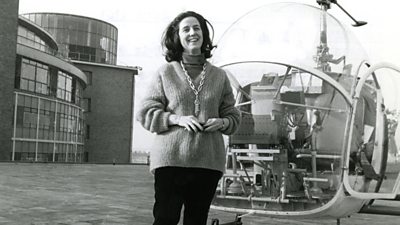
Yvonne Littlewood
Yvonne Littlewood was a prolific television director who joined ΒιΆΉΤΌΕΔ Television in 1948. She worked mainly in light entertainment becoming the ΒιΆΉΤΌΕΔβs first female producer in that department. She promoted the early careers of Nana Mouskouri and Petula Clark, booking them regularly for her shows. -
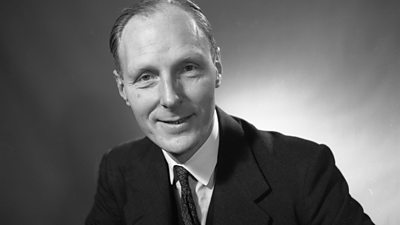
Seymour Joly de Lotbiniere
Seymour Joly de Lotbiniere known as Lobby to his colleagues, was responsible for the outside broadcast coverage of the London 1948 Olympic Games and later of the Coronation, the ΒιΆΉΤΌΕΔβs biggest broadcasting operation at that point. As head of outside broadcasts he knew the value of an eloquent speaker in bringing the atmosphere of the occasion to the audience at home. -
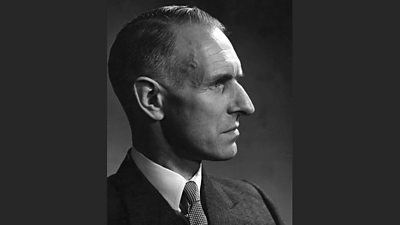
Cecil Madden
Cecil Madden made some of the very first television programmes including Picture Page and Gossip Hour β the first chat show. During the War he ran Allied Expeditionary Force radio and afterwards returned to television. He transformed Childrenβs Hour and was responsible for Whatβs My Line? and This Is Your Life. -
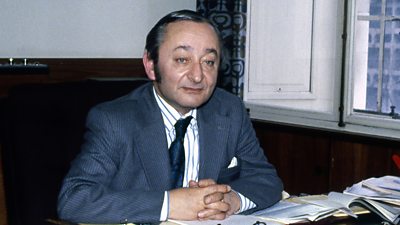
Gerard Mansell
Gerard Mansell was responsible for the transformation of the ΒιΆΉΤΌΕΔβs radio services in 1967 with the launch of Radio 1 and 2 and the rebranding of the Third and ΒιΆΉΤΌΕΔ Services into Radios 3 and 4. As Deputy Director General in 1979 he handled the fallout from a Panorama that the government mistakenly thought was going to contain footage of an IRA roadblock. -

Una Marson
Una Marson was born in Jamaica, and began working life on magazines in 1926, founding her own publication: The Cosmopolitan. She moved to London in 1932, and became involved in activist groups such as the League of Coloured Peoples. In 1939 she became a researcher for the popular pre-war television magazine programme, Picture Page. By 1942 she had been appointed as co-ordinator and host on the regular Empire Service programme Calling the West Indies. -
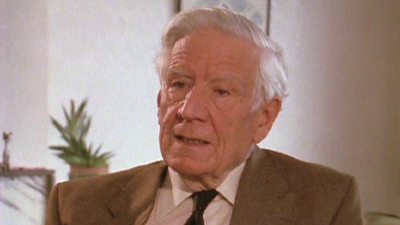
Francis McLean
Francis McLean had become experienced in setting up radio transmitters in the late 1920s in Italy, Switzerland, France, Czechoslovakia and Hungary. In 1937 he joined the ΒιΆΉΤΌΕΔβs Station Design and Installation Department as head of the radio section. Post war he was a key player in the development of colour television in the UK. McLean became Director of Engineering in 1963. -
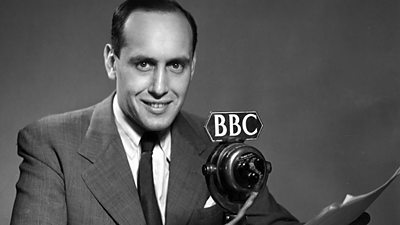
Leonard Miall
Leonard Miall was the ΒιΆΉΤΌΕΔβs Washington Correspondent who saw the significance of the Marshall Plan for the economic recovery of Europe after the War and reported it in such a way that made European leaders take note. He was head of Television Talks at a time of great creativity and helped shape current affairs television. By 1971 he had become Controller, Overseas and Foreign relations. -
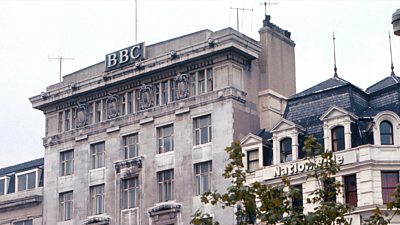
Grahame Miller
Grahame Miller first joined ΒιΆΉΤΌΕΔ North Region in 1947 and became overall head of programmes there in the early 1960s. He presided over a collective spirit inside the service, and became known for his work on the series Public Enquiry -
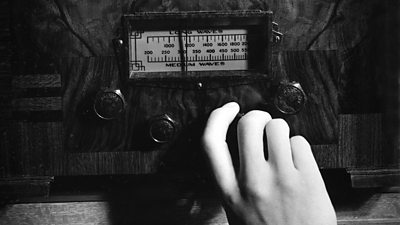
CHG Millis
CHG Millis was Governor and Vice Chairman of the ΒιΆΉΤΌΕΔ from 1938-1946, succeeding Harold Brown who had served for the previous 5 years. Millis had come from the world of banking, having been a partner at Baring Brothers prior to his appointment. -

Cliff Morgan
A Rugby fly-half with 29 Welsh caps and the captaincy of the British Lions to his credit, on retirement from the game, Cliff Morgan was appointed radio sports organiser for ΒιΆΉΤΌΕΔ Wales. Moving to television, he edited Grandstand and Sportsview, and became Head of Outside Broadcasts in 1975. Morgan was also a popular screen presence, particularly as a team captain in A Question of Sport.
-

Colin Morris
Colin Morris became head of ΒιΆΉΤΌΕΔ TV Religious Programmes in 1978, following a period as regular speaker on Thought for the Day from the 1960s. He was a socialist and anti-racist and believed this represented the authentic spirit of Christianity. Other ΒιΆΉΤΌΕΔ roles included Head of Religious Broadcasting, Special Advisor to the Director-General, and Controller of ΒιΆΉΤΌΕΔ Northern Ireland. -

Roger Mosey
Roger Mosey entered the profession through local radio, and rose through the ranks to become editor of, successively, PM, The World at One and Today, before being appointed Controller, Radio5 Live in 1996. He subsequently oversaw ΒιΆΉΤΌΕΔ coverage of the Olympic Games of Beijing in 2008 and London, 2012. -

Frank Muir
Frank Muir was one of the UKβs best known post-war radio and television writers and raconteurs. His ΒιΆΉΤΌΕΔ radio work began with writing sketches for Take It From Here (1948-59). He was then a regular panellist on My Word! and My Music for the next 35 years! -
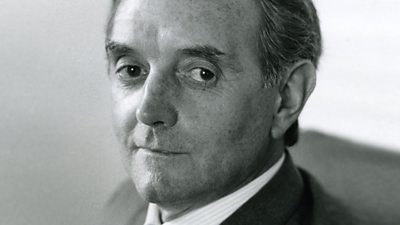
PH Newby
Percy Howard Newby started his ΒιΆΉΤΌΕΔ career in 1949 producing programmes for the ΒιΆΉΤΌΕΔ Third Programme - now ΒιΆΉΤΌΕΔ Radio 3. Toward the end of his career he achieved the position of Controller of the Third Programme, and finally to Managing Director, ΒιΆΉΤΌΕΔ Radio. -
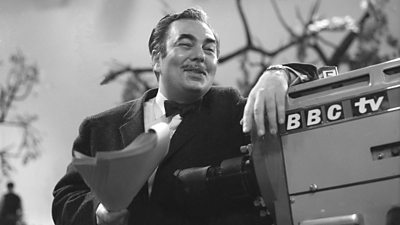
Sydney Newman
Sydney Newman was a major player in the development of ΒιΆΉΤΌΕΔ Television drama, having moved across from ITV in 1962, joining as Head of ΒιΆΉΤΌΕΔ Television Drama. He conceived the ever-popular Doctor Who (1963), and initiated the new anthology series The Wednesday Play (1964), commissioning writers and directors such as Ken Loach and Dennis Potter. -
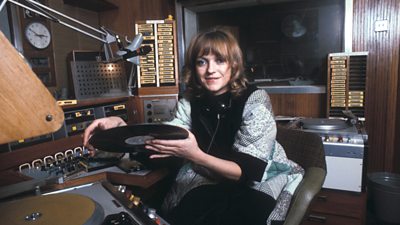
Annie Nightingale
Annie Nightingale became the first female DJ on Radio 1 when she joined in 1970 and remains the stationβs longest serving presenter. She also fronted The Old Grey Whistle Test. She enjoys a career that has moved with the generations, championing music from punk to dubstep. -

Meryl OβKeeffe
Meryl OβKeeffe began her announcing career at Southern Television. Next she moved to London to announce on ΒιΆΉΤΌΕΔ One, and then to ΒιΆΉΤΌΕΔ West to present Let Me Tell You visiting a different town in the South West every week. Meryl became one of the presenters on the global satellite programme Our World (1967). She continued broadcasting internationally on the World Service until 1992. -

Dorothy Preston
Dorothy Preston was one of the first women to be employed in the ΒιΆΉΤΌΕΔ as a Technical Assistant recruited at the outset of World War Two. Preston met resistance from male engineers to women working in the Engineering Division, and faced pressure to move into work in studios when men were de-mobbed and returned to their engineering jobs. -
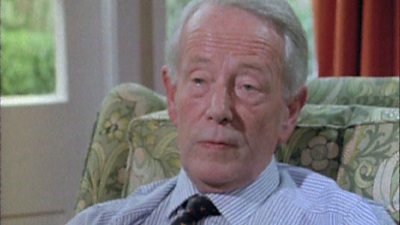
James Redmond
James Redmond was a pioneering broadcast engineer, who worked at the first TV station at Alexandra Palace in 1938 and ended his career 40 years later as the ΒιΆΉΤΌΕΔβs Director of Engineering. His career included the introduction of ΒιΆΉΤΌΕΔ Two, colour television, early digital technology, and the CEEFAX teletext service. -
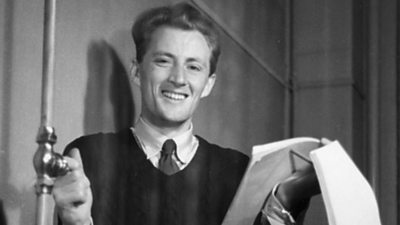
Owen Reed
Owen Reed was Head of Childrenβs Programmes from 1956-1963. He commissioned Blue Peter, which first aired in 1958. He was responsible for the title of the show, which was derived from the Blue Peter flag - a maritime signal that indicated a vesselβs imminent departure. Reed felt the name represented 'a voyage of adventure'. -

John Reith
John Reith (1889-1971) was the ΒιΆΉΤΌΕΔβs first general manager when it was set up as the British Broadcasting Company in 1922, and was its first director general when it became a public corporation in 1927. He created the template for public service broadcasting in Britain. Reith fought off the politicians' attempts to influence the corporation, while offering the British people programmes to educate, inform and entertain. -
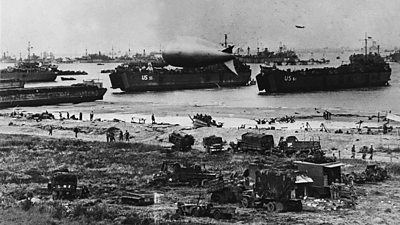
Susan Ritchie
Susan Ritchie was recruited into ΒιΆΉΤΌΕΔ Monitoring in Caversham in 1944 at the age of 18. Her first job was to take edited copies of translations from the language monitors and type them onto stencils so that they could be reproduced and sent as duplicates around various ΒιΆΉΤΌΕΔ departments. The routine work was vital for the accurate dissemination of information coming from foreign broadcasters during the war. -

Alwyn Roberts
Dr. Alwyn Roberts was on the ΒιΆΉΤΌΕΔ Board of Governors and was Chairman of the Broadcasting Council in Wales before representing the ΒιΆΉΤΌΕΔ on the first Board of S4C β the Welsh Channel 4. He was crucial in ensuring constructive collaboration between the ΒιΆΉΤΌΕΔ and S4C, marrying two different operational cultures which ensured the success of the channel in its early days. -

Audrey Russell
In 1944 Audrey Russell became the only British woman to be accredited as a war correspondent and went on to became the first female news reporter. Later, she was to become well-known to radio listeners as the voice of state occasions, including the Coronation and Winston Churchillβs funeral. -
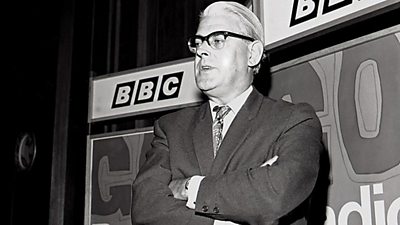
Robin Scott
Robin Scott was the first Controller of Radio 1 and Radio 2 when they launched in 1967. He recruited many disc jockeys from pirate radio and soon had 10 million listeners. His ΒιΆΉΤΌΕΔ career began in 1942 at the French Service and in 1969 he became Controller of ΒιΆΉΤΌΕΔ Two. -

Mary Somerville
Mary Somerville was largely responsible for developing schools programmes on ΒιΆΉΤΌΕΔ radio, a system of broadcasts envied by educationalists around the world. She was so highly valued by the Corporation that in 1929 it took the highly unusual step of introducing maternity leave, just so she could keep her new job as Director of School Broadcasting. -
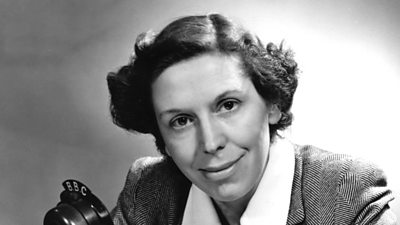
Olive Shapley
Olive Shapley was one of the first producers to put ordinary people in front of the microphone. She started in 1934 at Childrenβs Hour in Manchester, before moving onto talks, where the new mobile disc unit let her get into the community. She later presented Womanβs Hour and The Shapley File, which examined social issues. -

Charles Siepmann
Charles Siepmann joined the ΒιΆΉΤΌΕΔ in 1925, and was a pioneer of educational programmes. His major contribution to the ΒιΆΉΤΌΕΔ, was establishing the basic principles of public service broadcasting. He believed media institutions should be accountable to the communities they serve, and that a commercial system could never provide for a democratic societyβs real communication needs. -

Monica Sims
Monica Sims was appointed the first woman Controller of Radio 4 in 1978 and successfully modernised the network without alienating its loyal listeners. Before that, in a long ΒιΆΉΤΌΕΔ career that began in 1953, she was head of childrenβs television - introducing Newsround, Play School and The Wombles - and Editor of Womanβs Hour. -
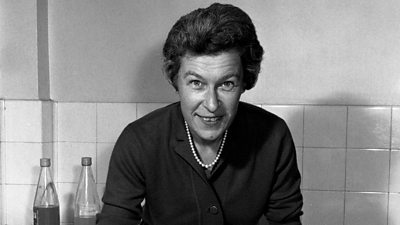
Zena Skinner
Zena Skinner was one of the UKβs first post-war TV celebrity chefs, and is considered the down-to-earth counterpart to the flamboyant Fanny Cradock. She made her first television appearance in February 1959, in Mainly for Women, where she demonstrated how to make brandy snaps. By the mid-60s she had various weekly cookery slots and throughout the 70s she presented series from French cuisine to curry cookery. -

George Ivan Smith
George Ivan Smith joined the Australian Broadcasting Commission in 1937 and managed 2WL a radio station in Wollongong. In 1939 he became talk's editor and a founder of the new overseas short wave broadcasting service, Radio Australia. Seconded to the ΒιΆΉΤΌΕΔ in 1941 he became head of the ΒιΆΉΤΌΕΔ Pacific Service. -
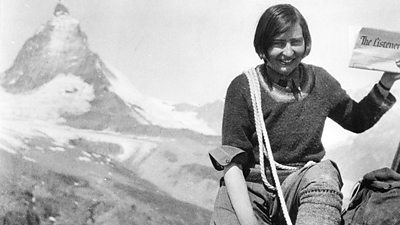
Janet Adam Smith
Janet Adam Smith was a writer, editor and proponent of Scottish literature. She joined the ΒιΆΉΤΌΕΔ in 1928, and from 1930 to 1935 took up the post of Assistant Editor of The Listener. She was interested in commissioning articles on art and selected reviewers for books and was keen to publish new poetry. She left a legacy that was remembered for decades to come. -

John Snagge
John Snagge joined the ΒιΆΉΤΌΕΔ at Stoke on Trent in 1924 but rose to prominence as an announcer during the Second World War, where he brought the news of Pearl Harbour and D-Day. He started commentating on the Boat Race in 1931 and continued his association until 1980. -
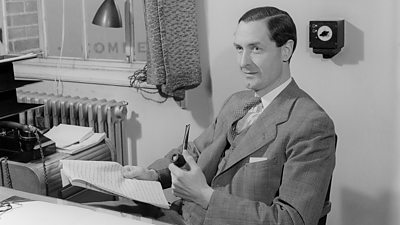
Andrew Stewart
Andrew Stewart was a true pioneer of British broadcasting, Stewart joined the ΒιΆΉΤΌΕΔ β then still a company β at Savoy Hill in 1926. He went on to distinguish himself in three Controllerships: Northern Ireland (1948-1952), ΒιΆΉΤΌΕΔ Service (1953-1957) and then in his native Scotland (1957-1968). -
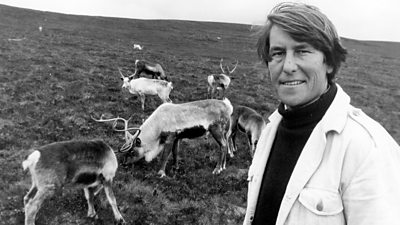
Tony Soper
Tony Soper has spent a life in natural history broadcasting. He was a co-founder of the ΒιΆΉΤΌΕΔ Natural History Unit with Patrick Beech, Controller, ΒιΆΉΤΌΕΔ South-West. At first Soper was the unitβs film producer travelling the world for a series called Look. Other series included production and presentation on Wildtrack, Discovering Birds, Discovering Animals, Beside the Sea, Nature, Birdwatch, and Birdspot. -

Joanna Spicer
Joanna Spicer was appointed head of television programme planning in 1951 and was an influential figure through televisionβs formative years. Her achievements include Doctor Who, which she supported onto the small screen, overcoming budgetary limitations. She was the first woman to be made a Fellow of the Royal Television Society. -
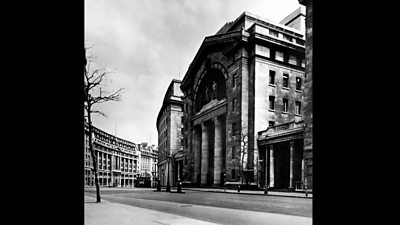
Alec Sutherland
Alec Sutherland was a producer in the ΒιΆΉΤΌΕΔ Recorded Programmes department and was later responsible for publishing the ΒιΆΉΤΌΕΔβs accounts. During wartime he was responsible for the βshadowing of Big Benβ. This involved being on standby in the studios, ready to replace the live sound of Big Ben striking 9pm with a recording of its chimes if the Luftwaffe were flying over Westminster at the very moment it was due to be broadcast. -
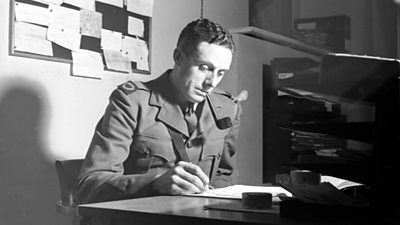
Godfrey Talbot
Godfrey Talbot started out at the ΒιΆΉΤΌΕΔ in 1937 following an earlier career in print journalism. He became one of the key ΒιΆΉΤΌΕΔ war reporters and royal correspondents. During World War Two he covered the major battles at El Alamein and Monte Cassino, and received an OBE in 1946.
-

Mary Ticehurst
Mary Ticehurst was the ΒιΆΉΤΌΕΔβs first woman vision mixer. Joining the ΒιΆΉΤΌΕΔ Television Service at Alexandra Palace before the war, she was responsible for the smooth fading of pictures from one live camera to the next. Cutting between cameras was not possible, because of the primitive nature of the fledgling equipment. Ticehurst was also one of the few women who worked at transmitter sites, cleaning and changing valves, monitoring levels and patching programming on a switchboard. -
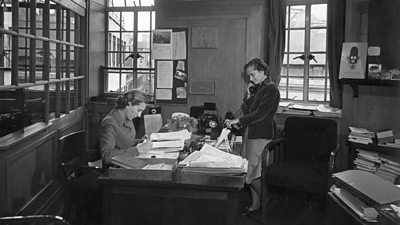
Dorothy Torry
Dorothy Torry was a secretary to six directors-general of the ΒιΆΉΤΌΕΔ, including founder, John Reith. Torry remembered Reith as "a great inspiration" and "an absolutely marvellous fellow because he talked to his secretaries, you know, discussed things with them." Torryβs role was a complex one, and she was often involved in the decision-making process itself. -
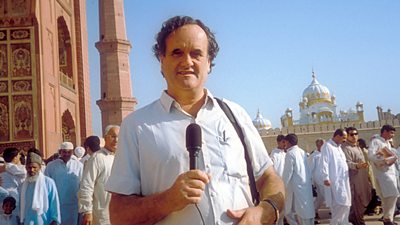
Mark Tully
Mark Tully was the ΒιΆΉΤΌΕΔβs face and voice in South Asia from 1965 to 1994, covering the sub-continent as Indian bureau chief. He was known for fearless and impartial reporting on events as varied as the Bhopal tragedy, the assassination of Indira Gandhi and the demolition of the mosque at Ayodhya. -
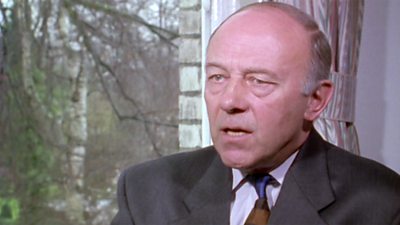
John Tusa
Sir John Tusa came to the ΒιΆΉΤΌΕΔ as a General Trainee in 1960. He produced programmes for the General Overseas Serviceuntil 1966, when he resigned to pursue a freelance interviewing and reporting career.Freelance work continued until 1980 when he became part of the original Newsnight presenting team. After 6 years in front of the camera Tusa moved back to international radio and was Managing Director of ΒιΆΉΤΌΕΔ World Service until 1993. He received a knighthood in 2003. -
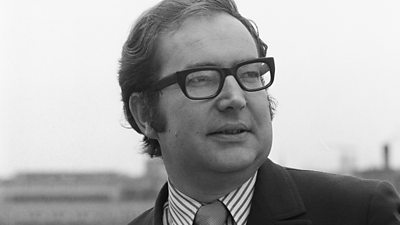
John Tydeman
John Tydeman joined the ΒιΆΉΤΌΕΔ in 1959, and a year later had signed up to the ΒιΆΉΤΌΕΔ general trainee scheme, which gave him the chance to work all over the ΒιΆΉΤΌΕΔ. He finally settled on radio drama, and produced numerous classics as well as the radio soap The Dales. A prolific radio drama production career continued into the 1990s becoming Head of Drama by his retirement, and will be remembered for βdiscoveringβ Joe Orton. -
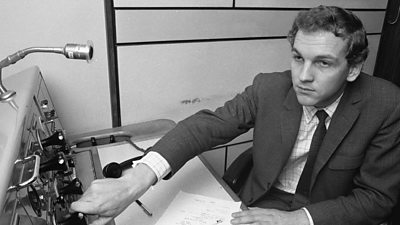
David Waine
David Waine originally trained as a local newspaper reporter, and quickly moved into local ΒιΆΉΤΌΕΔ TV journalism in the ΒιΆΉΤΌΕΔ South and ΒιΆΉΤΌΕΔ West regions. By 1967 he became the first Programme Organiser of the new ΒιΆΉΤΌΕΔ Radio Brighton, launching the career of sports presenter Des Lynam. Moving through the ranks Waine became Head of Network Production Centre at ΒιΆΉΤΌΕΔ Pebble Mill in Birmingham, and later Head of Broadcasting, ΒιΆΉΤΌΕΔ Midlands. -
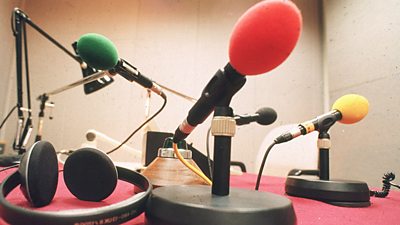
Ted Wilkinson
Ted Wilkinson applied to join the ΒιΆΉΤΌΕΔ in October 1934 in London, but for a role in drama production in Manchester for which he was initially rejected. He tried again and eventually landed a job as Variety Producer at ΒιΆΉΤΌΕΔ Belfast, producing numerous variety programmes which were eventually broadcast nationally. He is one of the first television pioneers, producing Picture Page a popular magazine programme. During the war and beyond he becomes Controller of ΒιΆΉΤΌΕΔ North. -
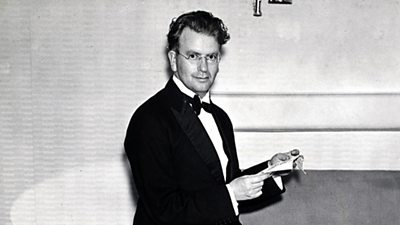
Stuart Williams
Stuart Williams joined the ΒιΆΉΤΌΕΔ as a junior sub-editor on the Radio Times, when he was sixteen years old, and later worked in outside broadcasts. He was a senior administrator in the ΒιΆΉΤΌΕΔ Overseas Service when it was established, moving into senior administrative positions in ΒιΆΉΤΌΕΔ Television. -
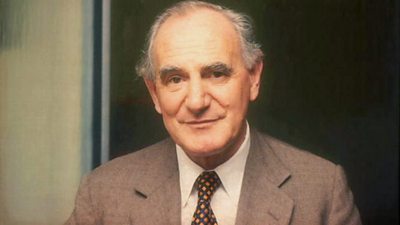
Huw Wheldon
Huw Wheldon began his ΒιΆΉΤΌΕΔ career in the publicity department in 1952, but was very keen to make programmes. His first television work was for children, but moved quickly across to documentary making. He is probably best known for his arts series Monitor, where he interviewed all the leading artists, musicians and sculptors of the 1960s. He became Head of Documentaries, then Controller - ΒιΆΉΤΌΕΔ One, and in 1968 was promoted to Managing Director, ΒιΆΉΤΌΕΔ TV. -

Joy Whitby
Joy Whitby made her mark on television in the sixties by revitalising childrenβs programmes. She introduced Play School with a diverse line-up of presenters and Jackanory, which attracted well-known actors and authors to read their books. She also saw the potential in Le ManΓ¨ge EnchantΓ©, turning it over to Eric Thompson who created The Magic Roundabout. -

Oliver Whitley
Oliver Whitley joined the ΒιΆΉΤΌΕΔ in 1935 and, at the outbreak of World War Two joined the ΒιΆΉΤΌΕΔ Monitoring Service at Wood Norton. There he monitored Nazi broadcasts. Following a dispute in 1941 over the proposal to move the unit to Caversham Park, he resigned. Demobbed in 1946, he re-joined the ΒιΆΉΤΌΕΔ, working mainly in External Services until retirement in 1972. -
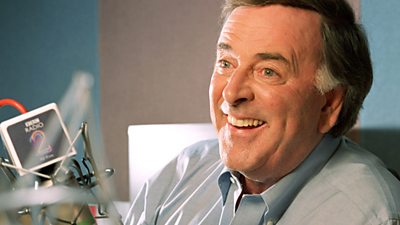
Terry Wogan
Terry Wogan was one of the first intake of DJs on Radio 1. With the Radio 2 breakfast show, his television chat show and his unique presenting style on the Eurovision Song Contest, Wogan established himself in the national consciousness. After his death in 2016 a ΒιΆΉΤΌΕΔ building was renamed in his honour.
